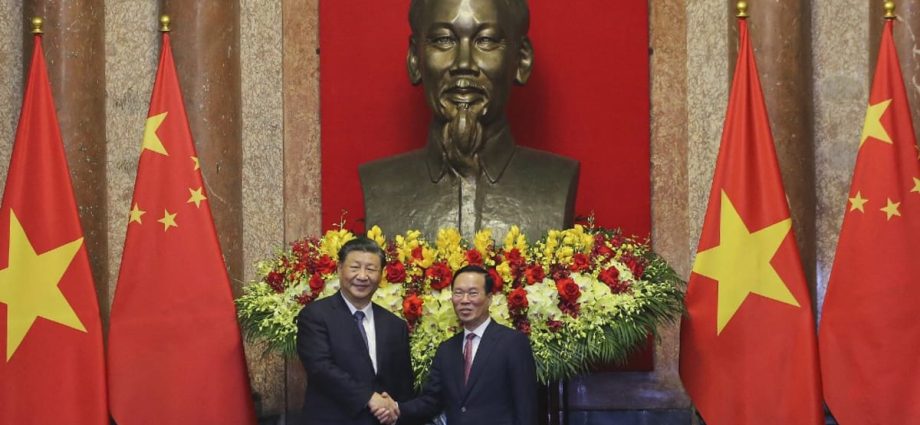
CAMARADERIE AND BROTHERHOOD
China is watching its Communist neighbour’s increasingly closer relations with Washington with interest. After Biden’s visit, Vietnamese President Vo Van Thuong travelled to Beijing in October to meet with Xi. The Chinese leader told him that the two countries have developed a deep friendship of “camaraderie and brotherhood”, and that they should regard the bilateral relationship as a priority in their respective foreign policies – a veiled reference, or a reminder perhaps, of keeping ties strong, no matter how much the US comes knocking.
Beijing has long-standing economic relations with Hanoi, but could do more to bring big-name Chinese companies to invest, Nguyen Quoc Cuong, a former Vietnamese ambassador to the US, told me from Hanoi.
“China is lagging behind some other countries, namely the US, in this regard. Personally, I would like to see big names like the Chinese versions of Apple or Intel in the high tech space, and the digital economy investing more here.”
But while using economic incentives to gain political leverage may be what the great powers are trying, it’s unlikely the strategy will be that straightforward. Vietnam will continue to be guided by a foreign policy that has allowed it to strike relationships with countries that are often at odds with one another.
It’s not just about managing the US and China, Lye Liang Fook, senior fellow at the Singapore-based ISEAS-Yusof Ishak Institute, told me.
“There is a new upgraded relationship with Japan as well. This visit by Xi is another indication of Vietnam’s delicate balancing act, but it also shows how the country has been been striking a healthy equilibrium with the major powers.”

